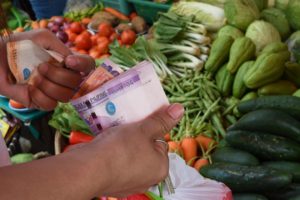Remittances from Filipinos abroad are expected to drop by a fifth this year amid a pandemic-induced global recession, putting households dependent on these cash transfers at risk of falling into poverty, the Asian Development Bank (ADB) said.
“The economic recession from the COVID-19 pandemic threatens the job security and well-being of over 91 million international migrants from Asia and the Pacific,” the Manila-based multilateral lender ADB said in a report titled “COVID-19 Impact on International Migration, Remittances, and Recipient Households in Developing Asia” released Monday.
“Migrant and informal workers are among those facing the most severe impacts as they often do not have regular contracts nor strong bargaining power. Migrant workers are more vulnerable from layoffs once prolonged lockdowns and production breaks drive companies out of business,” the ADB said.
In the case of the Philippines, the ADB projected a 20.2-percent fall in remittances in 2020 under a worst-case scenario of the pandemic raging on for a year.
Across all Filipino households, 8.4 percent received remittances from overseas, the ADB noted. In particular, “the highest prevalence of citizens receiving remittances is among senior citizens, at over 21 percent,” the ADB said, citing Philippine Statistics Authority (PSA) data.
Citing another recent study, the ADB said that compared to projected levels prepandemic, actual remittance inflows to the Philippines might fall by as much as 32 percent this year due to “adverse macroeconomic shocks in host-economies,” adding that this would result in a 2.2-3.3 percent reduction in household spending per capita.
Remittances accounted for more than a tenth of the Philippines’ gross domestic product (GDP) last year. INQ


